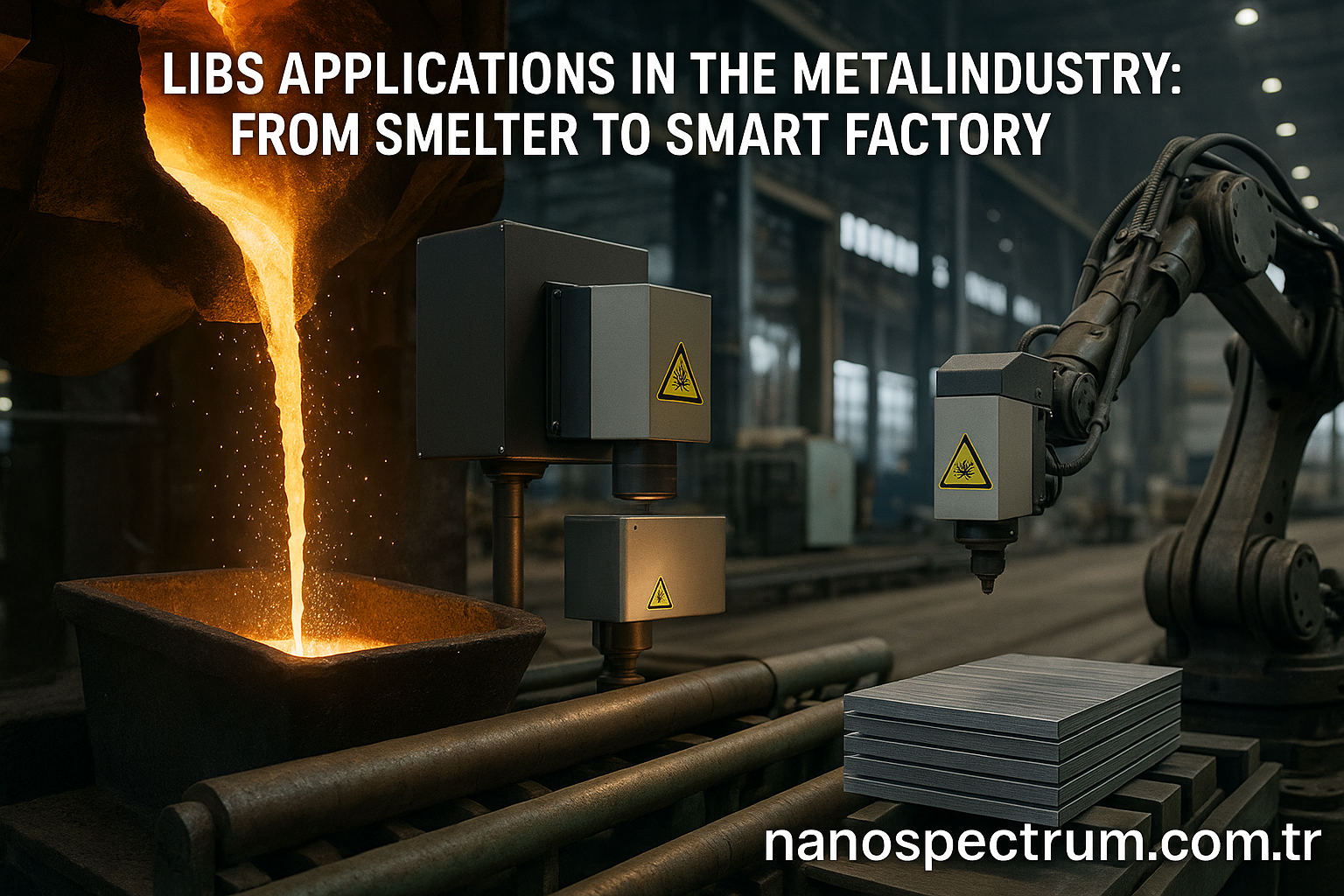LIBS Applications in the Metal Industry: From Smelter to Smart Factory

LIBS is transforming how we analyze and control metal production, offering real-time insights from molten metal streams to final product inspection.
Why LIBS Matters in the Metal Industry
In a sector where quality, speed, and traceability are everything, LIBS offers a revolutionary approach to elemental analysis. It allows for rapid, on-site, and non-destructive testing without halting production lines.
Applications Across the Production Chain
- Raw Material Inspection: Verifying incoming ores, scrap, and alloying elements before melting.
- Molten Metal Analysis: Inline LIBS probes can measure chemical composition in real-time during casting or refining.
- Quality Control of Finished Products: Surface composition testing on ingots, billets, sheets, and parts.
- Recycling and Scrap Sorting: Fast identification of different alloy types and contaminants.
- Coating Thickness and Surface Treatments: Detecting surface layers or oxidation before final packaging.
Case Study: LIBS in Aluminum Die Casting
Aluminum foundries use LIBS to ensure correct alloy composition before molds are filled. This helps prevent casting defects and improves structural performance. Inline LIBS units near ladles or crucibles offer sub-second feedback for process control.
Benefits for Metal Producers
- Reduces the need for slow, off-site laboratory tests
- Supports automation and smart manufacturing strategies
- Minimizes waste and rework by detecting deviations early
- Improves compliance with quality and certification standards
LIBS in Smart Factory Ecosystems
When integrated into an Industry 4.0 framework, LIBS devices feed real-time data into process control systems. This enables automated adjustments, predictive maintenance, and closed-loop quality assurance.
Challenges to Consider
- LIBS signals can vary depending on surface roughness, oxidation, or coating.
- Quantitative accuracy still requires careful calibration against standards.
- High-temperature environments require rugged optical setups and protective enclosures.
Conclusion
From the furnace to final inspection, LIBS is redefining how metals are analyzed. Its real-time, inline capabilities empower the metal industry to boost productivity, reduce waste, and maintain high standards of quality. As smart factories become the norm, LIBS will be an indispensable tool on the production floor.